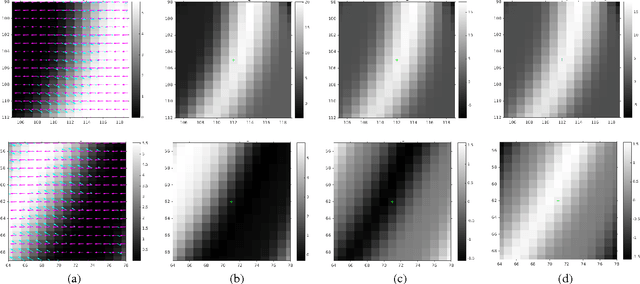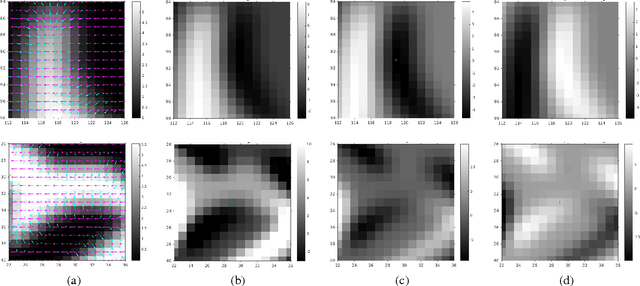Event-based Camera Pose Tracking using a Generative Event Model
Paper and Code
Oct 07, 2015



Event-based vision sensors mimic the operation of biological retina and they represent a major paradigm shift from traditional cameras. Instead of providing frames of intensity measurements synchronously, at artificially chosen rates, event-based cameras provide information on brightness changes asynchronously, when they occur. Such non-redundant pieces of information are called "events". These sensors overcome some of the limitations of traditional cameras (response time, bandwidth and dynamic range) but require new methods to deal with the data they output. We tackle the problem of event-based camera localization in a known environment, without additional sensing, using a probabilistic generative event model in a Bayesian filtering framework. Our main contribution is the design of the likelihood function used in the filter to process the observed events. Based on the physical characteristics of the sensor and on empirical evidence of the Gaussian-like distribution of spiked events with respect to the brightness change, we propose to use the contrast residual as a measure of how well the estimated pose of the event-based camera and the environment explain the observed events. The filter allows for localization in the general case of six degrees-of-freedom motions.
 Add to Chrome
Add to Chrome Add to Firefox
Add to Firefox Add to Edge
Add to Edge